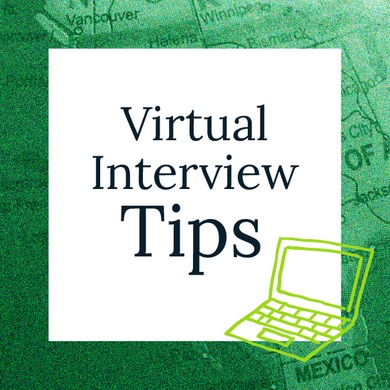Strengthen Your Interview Skills: How to Craft a Compelling Story of Impact

It can be hard to talk about yourself, especially if you come from a cultural background where highlighting your strengths is seen as bragging or impolite. However, telling your professional story gives employers critical insights into who you are and if your values align with the organization you are applying to.
If you're still feeling hesitant about telling your stories of impact, rest assured that you don't need to share anything about your experiences that you're uncomfortable with sharing. Retelling a story that drudges up painful emotions or even triggers a physiological response will only make you associate your professional life with your trauma. A simple, "I had a family emergency during that time period," is usually enough when talking to an interviewer.
A good rule of thumb is: would you be comfortable telling your story to a stranger, your favorite teacher, and your grandma? If not, maybe leave some stories for other creative endeavors. Be vulnerable as you're comfortable with being. The story should highlight first and foremost how your experiences tie into the mission of your organization's goals.
If you are unsure where to start, check out the tips below to help write your story of impact in no time!

Tips for a Successful Virtual Interview
Research the organization you're targeting and see what they value.
Collecting this information prepares you for which stories you want to tell and helps you evaluate whether or not the organization’s values align with yours.
When conducting your research, write down any phrases or themes they identify in their work, and reflect on your complementary experiences. Are any words immediately evocative of experiences that you have had? Note them!
If combing through an entire website seems overwhelming, run their web pages through a word cloud generator to help you envision what themes they continuously identify. However, context is key—by doing this without reading, you miss out on the impact of the organization's work.
Reflect on professional or academic experiences that ignited your passion.
Tell stories with a cause-and-effect viewpoint. Maybe you want to reference a cause that ignited your passion or interest in this role. This will serve as an introductory anecdote to highlight the theme of your main story.
For example, maybe in high school you helped organize a student walkout in response to racial injustice and this lead you start an anti-racist club in college. Another example, possibly you were a camp counselor for differently-abled kids and this inspired you to pursue a degree in Accessible Education.
Identifying the root of your passion gives several paths to where you can expand. Download this workbook to help you refine your experiences and accomplishments.
Be specific as possible when telling your story.
You didn't just volunteer with older adults. You uplifted John's quality of life while he was fighting dementia.
You didn't just tutor third graders after school. You worked with Vanessa on her vocabulary and reading comprehension to help her catch up to her peers.
While quantifying your outcomes is great to list on your resume, data by itself neglects the human element of successful outcomes. Giving your interviewer specific characters to identify and root for helps make your story compelling and memorable.
Two words: Word. Economy.
By ensuring that every word in your story describes a character, the challenge, or the takeaways, you can ensure that the interviewer recalls your story accurately.
Use the STAR method.
Okay, you're still struggling with how you can word your stories of impact. If that's the case, the STAR technique can help make your stream-of-consciousness experiences into succinct cause-and-effect situations.
Start with the:
Situation: Set the scene by giving your interviewer the necessary details about the problem you faced.
Task: What role did you play in solving the problem at hand?
Action: What actions did you and your teammates take to solve the problem?
Result: What was the outcome of the situation?
You should have 3-4 stories of impact prepared before your interview. You want to succinctly and effectively tell your stories so that your successes really shine and demonstrate critical thinking and a solutions-oriented mindset. It can also be just as powerful to use the STAR method to walk the interviewer through situations where you might have come up short.
Interviewers aren’t asking about your failure because they think you’re incompetent. They’re asking because they want to see that you can take responsibility for your actions, discover new ways to approach problems, and ultimately learn from your experiences.
Record yourself telling your stories of impact.
Do you overly rely on filler words such as ah, uh, or like while speaking? While most employers know they aren't hiring a professional speaker, being intentional with your verbiage illustrates how you effectively communicate.
Tip: If you're nervous about speaking to your interviewer, practice telling your stories in front of a trusted friend or mentor or record yourself ahead of time to identify areas you need to improve. This practice gives you the space to organize the beats in your story of impact. You also have the bonus of your friends and mentors highlighting strengths that you didn't even consider highlighting.
End with connection.
If the interviewer doesn’t have any follow-up questions, wrap up your response by showing an interest in how they got their start at the organization.
Remember, you are interviewing the organization just as much as they're interviewing you. Hearing your interviewer's story will also allow you to compare similarities between your and your interviewer's experiences. This discussion may evoke a story you forgot to mention or at least give you insight into how someone else cultivated their career path.
Dive deeper into this topic and ignite your storytelling ideas by streaming the Evolve event, How to Tell Your Story of Impact, with Veronica Aguilar, VP of Recruitment at Teach For America.



